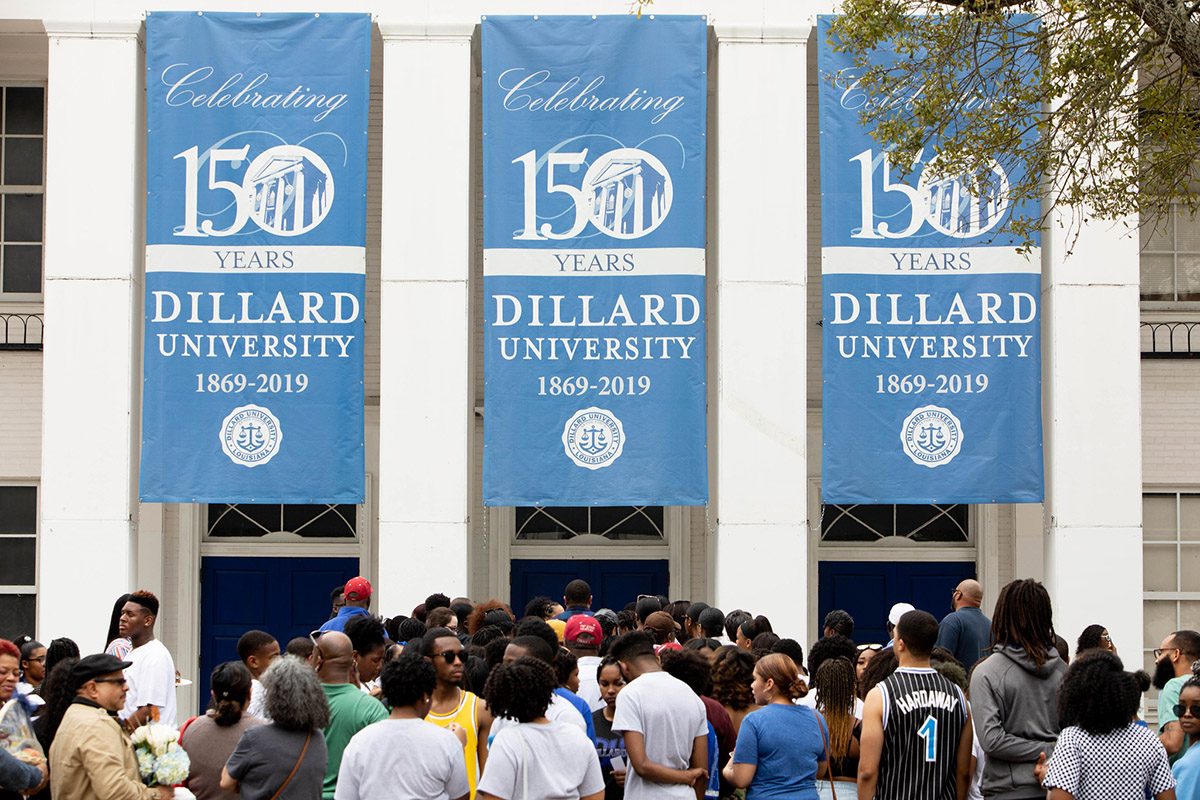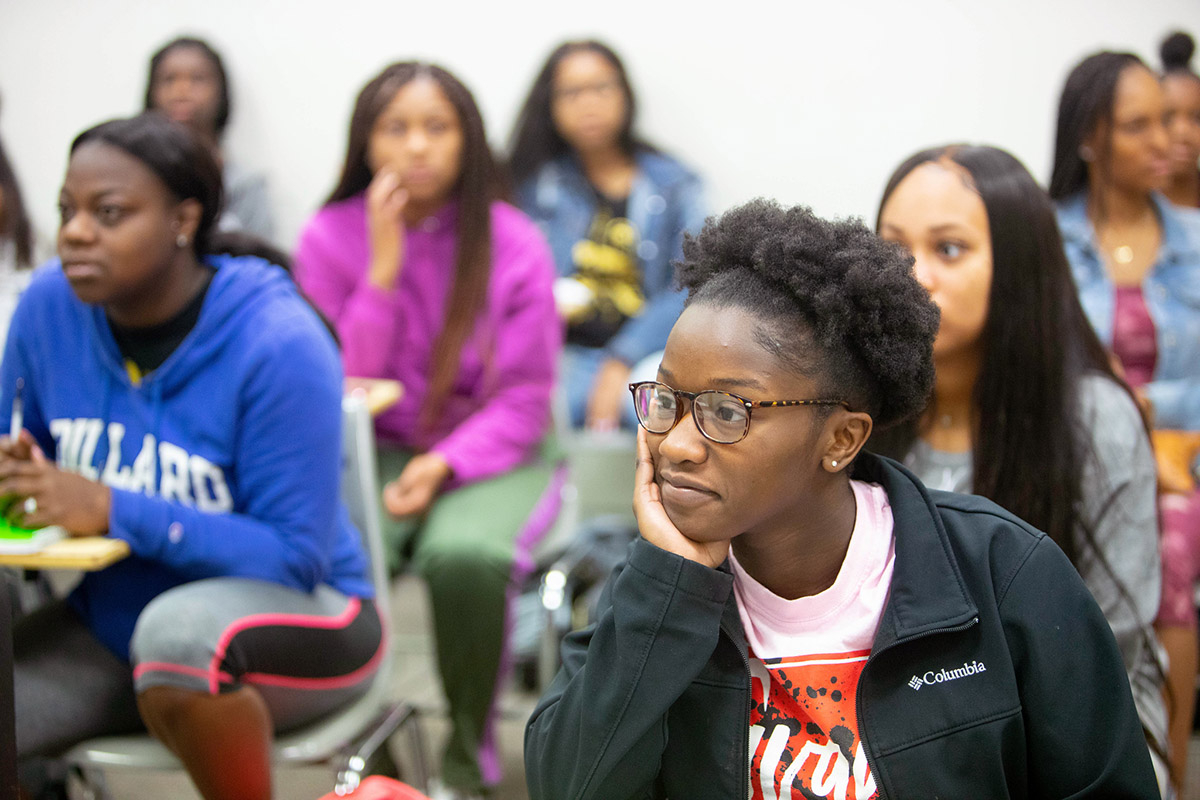Dillard University Persistence and a Student-Focused Path to Grant Writing Success
SUPPORTING STUDENTS ON A SCIENCE CAREER PATH
Dr. Ruby Broadway, professor of biology at Dillard University, a historically Black college in New Orleans, recently celebrated another successful grant application. With the help and support of the University of Kentucky's iMERS program, Broadway secured $1.4 million for Dillard from the National Institutes of Health (NIH) for U-RISE, the Undergraduate Research Training Initiative for Student Enhancement. The purpose of U-RISE is to encourage underrepresented students to prepare for graduate study and careers in the health and biomedical sciences.
The U-RISE grant is only the most recent success in Broadway's long commitment to supporting undergraduate students on a path to careers in science. It follows the work begun by Broadway in 2015, with the NIH-funded MARC U-STAR (Maximizing Access to Research Careers Undergraduate Student Training in Academic Research), a research-based STEM honors program to increase the number of underrepresented students in doctoral programs.


THE SCIENCE PIPELINE
These projects are close to Broadway's heart. "I attended a summer science program in high school, and it was such a great experience. Then, while in college, I went to a research program each summer. I looked back over my journey, and I wanted to provide that type of science and research exposure to students at Dillard."
The effectiveness of the MARC U-STAR program is evident in student achievement. All participants in the program graduated, and 85% were accepted by graduate programs in the health sciences, including The Pennsylvania State University, Tulane University, Johns Hopkins University, Mayo Clinic, the University of Notre Dame, and the Van Andel Institute. The results raise the visibility of the university as well, Broadway explains. "These institutions are seeing the caliber of students that Dillard produces."
But Broadway's initial grant success didn't come easily. The MARC U-STAR grant proposal went through many revisions and several submissions before securing funding from the NIH. Broadway's tenacity played a crucial role in winning the funding. And along the way, she found a strong partner in the University of Kentucky.
SUPPORT FROM THE UNIVERSITY OF KENTUCKY
Broadway first encountered UK's outreach support for faculty of historically black colleges and universities (HBCUs) at an on-campus grant workshop hosted by Dillard. In the process of writing the MARC grant at the time, she spoke to Dr. Donald Frazier, the UK professor of physiology renowned for his history of successful grant writing and a deep, abiding commitment to outreach. When Broadway explained her goals at the workshop, Frazier found her a place in the next grant workshop on the University of Kentucky campus and secured funding for her travel.
As a result of that connection, Dr. Barbara Duncan of the UK Proposal Development Office (PDO) reviewed and edited Broadway's proposal draft. Soon after, Broadway traveled to Kentucky to meet personally with Duncan and PDO Executive Director Kathy Grzech to go over every aspect of the draft—"from the narrative to the budget." Duncan, Grzech, and other PDO staff worked intensively with Broadway for several days, getting the proposal ready to submit.
The submission was a success. With the professional guidance of UK staff, Broadway obtained $1.2 million in NIH funding for the first MARC program at Dillard University in 2015.
The following year Broadway worked with UK again, securing funding from the US Department of Education for an initiative offering in-depth science training for minority high school students considering a STEM career. The summer instruction provided essential preparation for undergraduate study in the sciences. A supplemental grant followed to add a research focus in support of Dillard faculty affiliated with the program, bringing the total funding acquired for this work to $950,000. Continuing this effort into 2023, a second grant for $750,000 was awarded in 2020 to provide research-focused training to sophomore and junior level STEM majors.
WORKING WITH iMERS
The UK connection, what Broadway has called "the everlasting relationship", continued as she wrote more grant proposals for the support of undergraduates headed for health science careers. But the source of UK support underwent a change. The fall of 2018 saw the beginning of iMERS, a new College of Medicine initiative funded by the National Institute of General Medicine Sciences specifically to guide faculty at minority-serving institutions through the complex process of NIH grant writing. The iMERS grant extends through the summer of 2023, providing UK the resources to continue supporting faculty such as Broadway at HBCUs and other minority-serving colleges and universities.
With support from the iMERS team in 2019, Broadway secured funding from the National Science Foundation for the GP-EXTRA Urban-Wide Advanced Transdisciplinary Environmental Research (Urban-WATER) Program. This program introduces undergraduate students to Geosciences, particularly related to water resources and the environment, making possible the establishment of an interdisciplinary certificate program a great addition to Dillard's curriculum. "The mere fact that we are venturing out beyond our boundaries like geosciences, even though we are a small HBCU," Broadway says, "that's something new and innovative."
Duncan points out that Broadway's grant work has made her a force in academia. "With her network of biologists, HBCU faculty, and her research," Duncan says, "she's in a pivotal position." In fact, Broadway already has a reputation for grants skills. She has received requests from California grantors to read and evaluate their applications, an acknowledgment of her grant writing expertise that Broadway also interprets as a plus for her university.
"That puts Dillard on the map."
APPLY, APPLY, APPLY
Funding research is a multi-step, process-driven endeavor. And not every grant proposal will be successful, at least not at first, explains Broadway. Persistence like hers is essential. In fact, recent NIH data indicates that a grant resubmission doubles an applicant's chances for success.
"Apply, apply, apply," Broadway advises. "That's my motto."
While persevering in grant writing, Broadway plans to continue working with iMERS and UK saying "I have never met a group of people who have been so supportive, so excited about projects, and so encouraging about the fact that I can do this. Words can't express the friendship we've built that I never intend to let go."
For faculty at minority-serving institutions (MSIs) challenged to find the time, staff, or expertise to pursue NIH funding for their scientific research, iMERS offers a path toward grant writing success. Our free program shortens the learning curve by sharing best practices through presentations, workshops, and faculty mentoring that guide participants step-by-step through the complex NIH funding process. Encouraging faculty to actively engage in research enriches the curriculum and motivates minority students to pursue careers in science for a more diversified biomedical workforce. Located at the University of Kentucky, iMERS is NIH-funded and supported by a team of industry experts who have served underrepresented students and institutions nationwide since 1998.
iMERS PROGRAM
A program designed to assist MSI faculty through each stage of the NIH proposal process.
iMERS WORKSHOPS
We offer two types of in-person workshops that orient participants to the research funding process.
iMERS MENTORING
Our team provides one-on-one support to help MSI faculty refine the scientific content of their grant application.